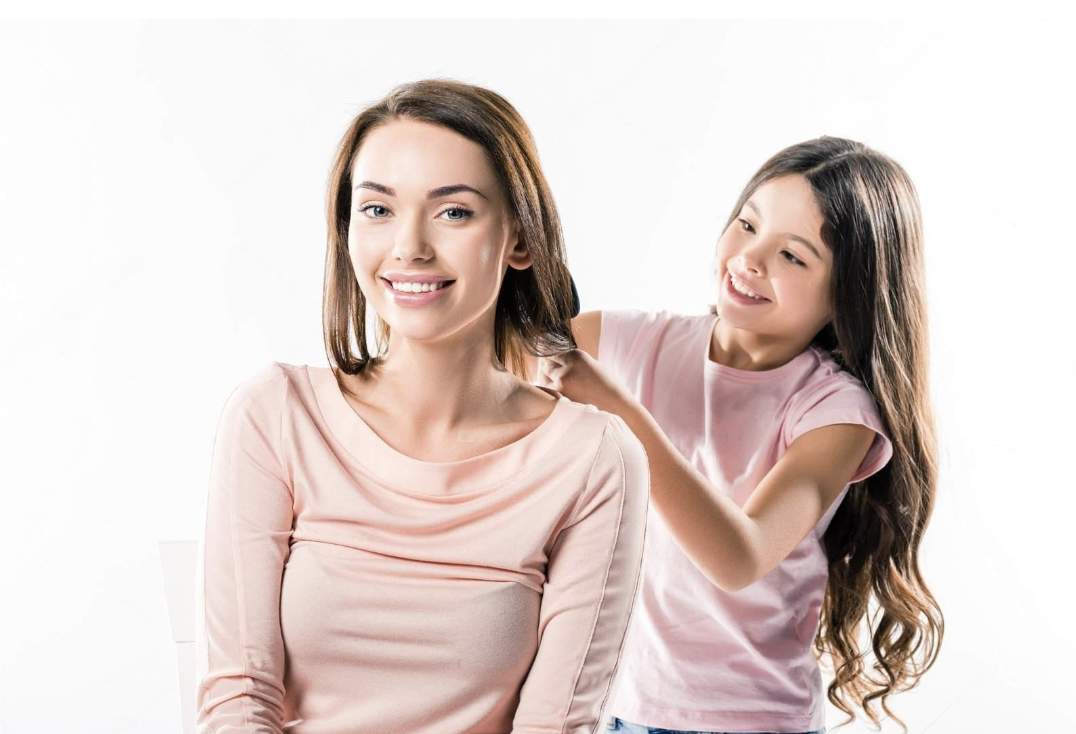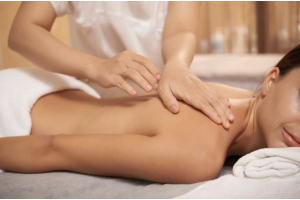The Ultimate Guide to Postpartum Hair Loss: Tips for New Moms

Becoming a new mom is an incredible journey filled with joy, love, and profound changes. However, one unexpected challenge many women face during this transition is postpartum hair loss. It's a common issue that can be both frustrating and concerning, but it's important to remember that it's a normal part of the postpartum experience.
In this comprehensive guide, we'll explore the causes of postpartum hair loss and provide you with practical tips to help you manage it effectively. Whether you're just starting to notice increased shedding or you're looking for ways to support your hair's recovery, we’ve got you covered.
Understanding Postpartum Hair Loss
Postpartum hair loss, also known as telogen effluvium, is a temporary condition that affects many women after childbirth. During pregnancy, increased levels of estrogen can cause hair to remain in the growth phase for longer. After delivery, the sudden drop in hormone levels triggers a larger number of hair follicles to enter the resting phase, leading to increased shedding.
This shedding typically begins around 3-4 months postpartum and can last for several months. It's important to note that it's not uncommon to lose up to 400 strands of hair per day during this period, which can be alarming for new moms. However, this is a natural and temporary process, and your hair will eventually return to its pre-pregnancy state.
Factors that Contribute to Postpartum Hair Loss
While hormonal changes are the primary driver of postpartum hair loss, other factors can exacerbate the issue:
- Stress: The physical and emotional stress of childbirth and the demands of caring for a newborn can take a toll on your body, including your hair.
- Nutrient Deficiencies: Certain nutrient deficiencies, such as iron, protein, or biotin, can contribute to increased hair shedding.
- Lack of Sleep: New moms often struggle with sleep deprivation, which can negatively impact hair growth and health.
- Postpartum Depletion: The demands of pregnancy and childbirth can leave new moms feeling depleted, both physically and mentally, which can affect hair health.
Tips for Managing Postpartum Hair Loss
Be Gentle with Your Hair
Avoid any harsh or excessive hairstyling techniques, such as tight ponytails, braids, or high-heat styling tools. Instead, opt for gentle, low-manipulation hairstyles that don't pull on your hair.
Prioritize Nutrition
Ensure that you're getting enough protein, iron, and other essential nutrients to support hair growth and health. Consider adding a high-quality prenatal vitamin or supplement to your daily routine. Also, consult with your healthcare provider about taking hair-healthy supplements, such as biotin, folic acid, or collagen.
Reduce Stress
Finding ways to manage stress and practice self-care can have a positive impact on your hair health. Engage in activities that help you relax, such as meditation, yoga, or simply taking a few deep breaths throughout the day.
Use the Right Shampoo
Hydrate your hair with shampoo, and make sure to choose a gentle, sulfate-free shampoo that won't strip your hair of its natural oils. Consider using a moisturizing shampoo formulated for postpartum hair loss to help nourish and strengthen your hair during this period of hormonal changes. Look for ingredients like biotin, keratin, and argan oil to promote healthy hair growth and prevent further breakage.
Massage Your Scalp
Regular scalp massages can help stimulate blood flow and promote healthy hair growth. Use your fingertips to gently massage your scalp in circular motions a few times a week. This can also help to distribute natural oils throughout your hair, keeping it moisturized and reducing breakage.
Be Patient and Consistent
Postpartum hair loss can be a frustrating experience, but it's important to be patient and consistent with your hair care routine. Remember that it's a temporary condition, and your hair will eventually return to its pre-pregnancy state.
Preventive Measures for Postpartum Hair Loss
While you can't completely prevent postpartum hair loss, there are some steps you can take during pregnancy to support your hair's health and potentially reduce the severity of shedding.
Ensure that you're getting adequate protein, iron, and other essential nutrients throughout your pregnancy. This can help strengthen your hair and promote healthy growth. Also, limit the use of heat-styling tools and tight hairstyles that can put unnecessary stress on your hair.
Postpartum Hair Loss Recovery
As your body adjusts to the postpartum period, you'll likely notice a gradual reduction in hair shedding. Here are some tips to support your hair's recovery:
- Be Patient: It can take up to 12-18 months for your hair to fully return to its pre-pregnancy state, so trust the process and don't be discouraged by the temporary increase in shedding.
- Maintain a Healthy Lifestyle: Continue to prioritize a balanced diet, stress management, and gentle hair care to support your hair's regrowth.
- Consider Hair Treatments: Speak with your healthcare provider or a dermatologist about the possibility of using topical treatments or supplements to stimulate hair growth and improve hair quality.
Embrace Your New Look
Postpartum hair loss can be a frustrating and concerning experience for new moms, but it's a common and temporary condition. What’s more, you're not alone in this journey—there are resources and support available to help you navigate this transition. So, embrace the changes and trust that your hair will return to its pre-pregnancy state with time and care.






